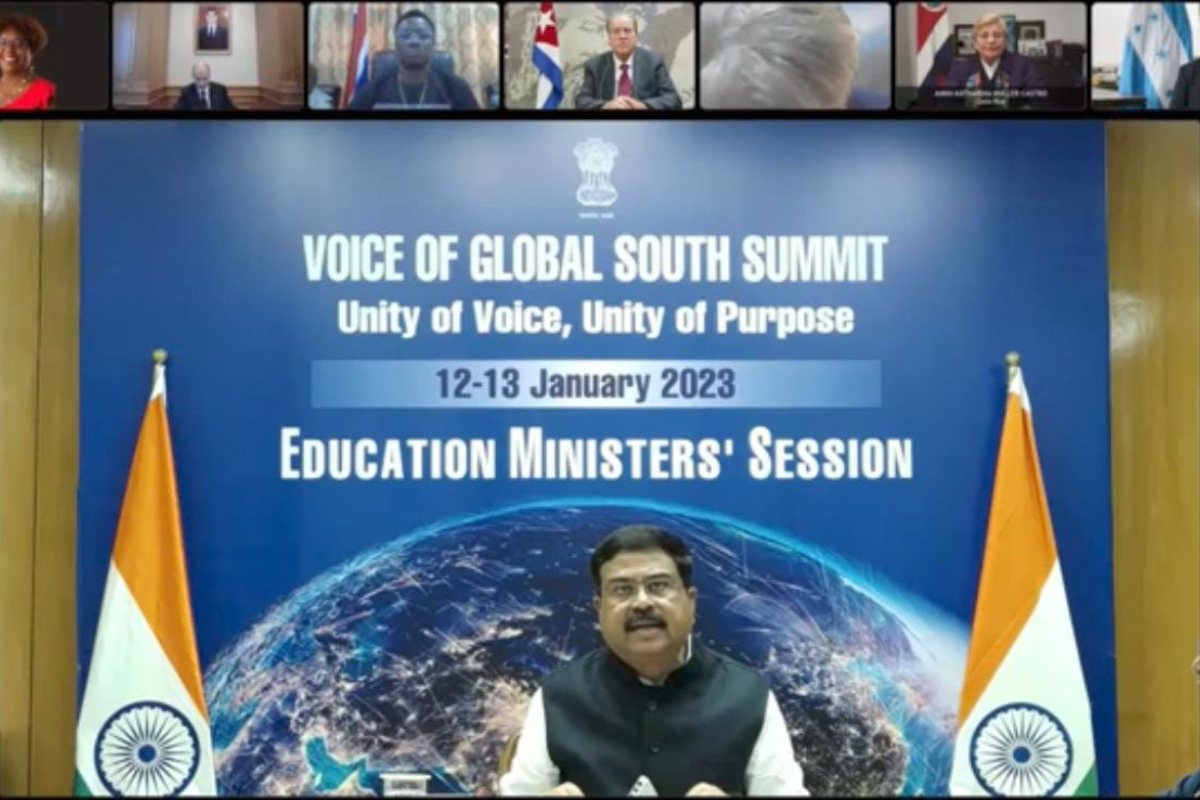Union minister of education and skill development Dharmendra Pradhan on January 13 stressed on National Education Policy (NEP) along with the goal of universal education.
Pradhan was addressing the session on ‘Human Resource Development and Capacity Building’ on the last day of the Voice of Global South Summit.
The session saw the participation of education ministers from 15 countries, including Turkmenistan, Yemen, Lao PDR, Micronesia, Nauru, Solomon Islands, Gambia, St. Lucia, Barbados, Uruguay, Costa Rica, Cuba, Honduras, Bahamas, St. Vincent and the Grenadines.
“Education is fundamental in achieving full human potential, investing in education and the skill development of our people is imperative to ensure that they have the required knowledge and capability to succeed in the 21st century,” Pradhan said while addressing the session.
“India has one of the largest youth populations in the world, with more than 1.5 million schools and around 1000 universities… We have the largest and most diverse schools in the world. To harness their potential, we are implementing the aspirational national education policy (NEP) 2020. NEP has brought sweeping reforms to our education ecosystem,” the Union minister said, highlighting that NEP aims to make India a global study destination.
Stressing how education has suffered in the global south due to colonisation, Pradhan said, “For centuries, the education ecosystem in most of the countries in the global south has suffered due to colonisation. It’s time now that we break out of the old mould and cater to the aspirations of our people, built on the foundational pillars of access, equity, quality, affordability and accountability.”
“A national educational policy to create an educational system that is rooted in Indian ethos as well as aligned to the 2030 agenda for sustainable development. It aspires to develop our youth and citizens who can find solutions to global problems with values of humility and compassion,” Pradhan said.
“Our government is implementing a range of schemes to improve the health of school-going girls, and we have also designed our curriculum to make it student-centric with special emphasis on teaching and learning in the mother tongue. We have brought in reforms to improve the quality of higher education by removing the rigidities of disciplines and promoting multi-disciplinary learning,” the Union minister from Odisha said.
“We are making our curriculum more relevant to changing global requirements and providing multiple entry-exit options for students to ensure flexibility in academic programs, skills and higher education. We all should develop technological infrastructure for seamlessness, integration of schools, skills and higher education,” he added.
“Focus is being given on providing experiential learning and hands-on experience through industry relevance, internships, and apprenticeships aligned with the needs of the job market,” he said.
Talking about the need for a national digital university, Pradhan said, “We are also establishing a national digital university that will transform access to higher education, drastically reducing all direct opportunity costs.”
Reaffirming India’s commitment to partner with the Global South towards achieving universal education and promoting human resource development, Pradhan said, “India remains committed to partner with the Global South in efforts towards achieving the goal of universal education and human resource development in respective countries for the 21st century.”

